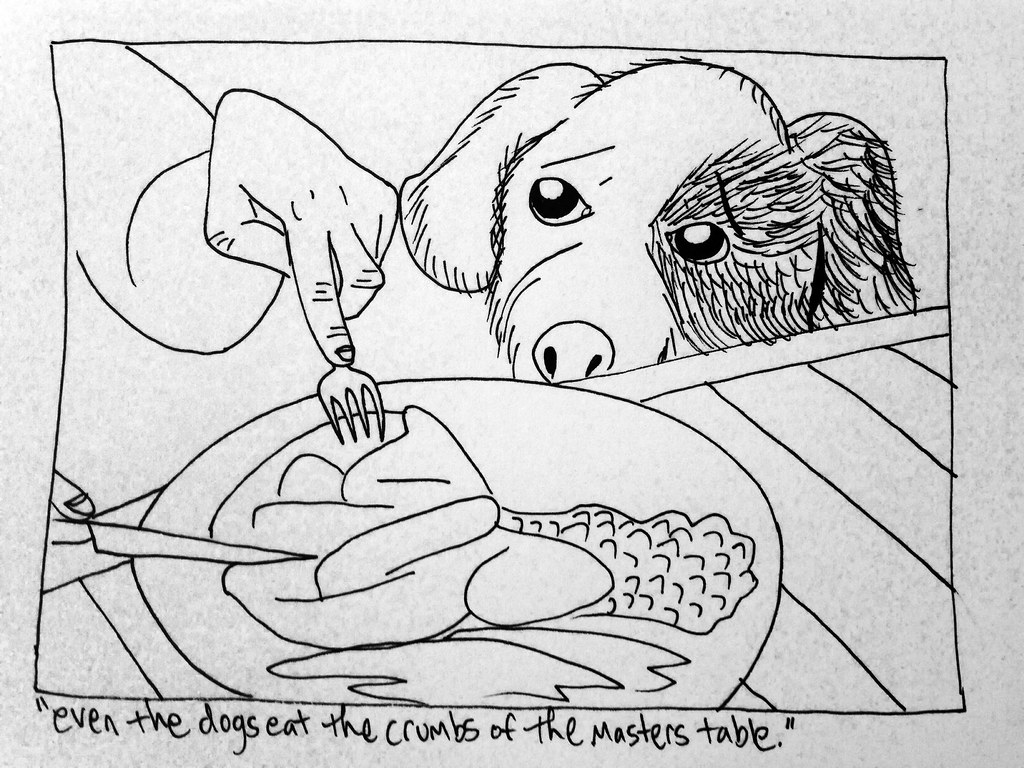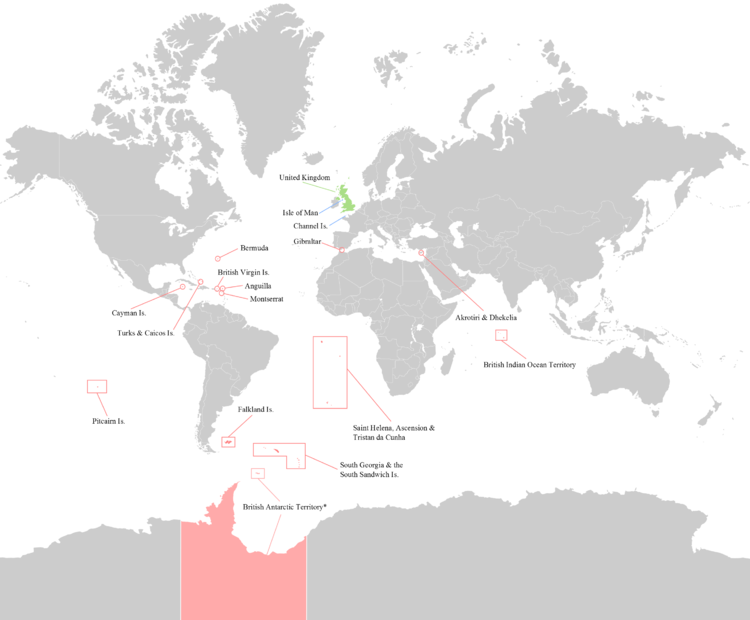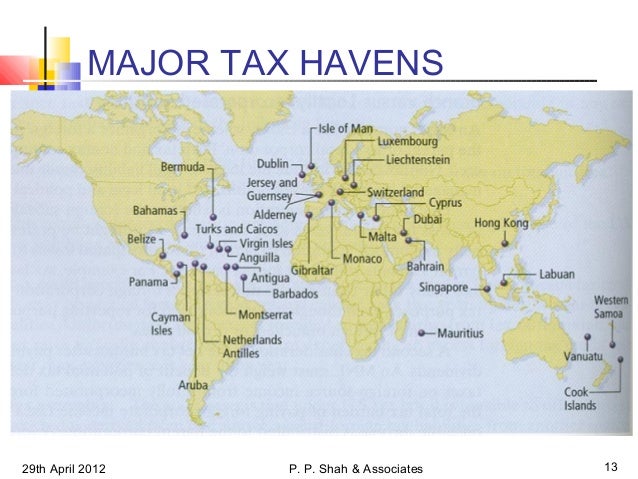A philosopher would already see in the title of this essay a presupposition and a question. The presupposition is that we already ‘know’ what ‘philosophy’ is. The question related to this: what is ‘philosophy’? To this question no simple answer can be given, because the question is itself a philosophical question - and therefore one that cannot be answered by some ‘definition’ of philosophy. Philosophy, by its nature, does not lend itself to definition, for among other things, it is a mode of thinking that questions all ready to hand ‘definitions’, just as it also questions the presuppositions contained in many commonly accepted uses and forms of language. With this statement we have by no means fully answered the question of what philosophy is, and yet we have already suggested something that comes close to its essence. This is a relation to language (including everyday language, the language of the sciences or religion, the language of the media - and of course the languages of different philosophies themselves) that not only sees and questions hidden presuppositions that can be concealed within language - but also sees and questions the way these presuppositions may be concealed - and the possible reasons for or motives behind this concealment. From this perspective, what does it mean to speak of ‘the annihilation of philosophy’? It means to speak of the very opposite of ‘philosophy’, i.e. the total annihilation or incapacitation of people’s ability to see or question presuppositions contained in language - or worse still, an incapacity to see how, in the absence of philosophy, language is violated or dumbed-down - all too often in the name of truth, even supposedly ‘higher’ truths.
Before we proceed to give examples of this concealed violence, a few more things need to be said about philosophy itself. One is that philosophy cannot, in principle, be reduced to a philosophy or to a set of ‘philosophies’, because its task is to question all philosophies - in particular through questioning the presuppositions contained or concealed within their language. Secondly, ‘philosophy’, being itself a word of Greek origin, is essentially a Graeco-European tradition. Therefore we cannot speak of any such thing as ‘Indian philosophy’, ‘Egyptian philosophy’ or even of European or ‘Greek’ philosophy - because when we do so we are effectively reducing philosophy to a mere geographic or historical spectrum of philosophies - rather than doing philosophy itself - which means principally to question philosophies. For the same reason we cannot speak, for example of ‘political philosophy’ or ‘social philosophy’ etc. - unless by this we mean a questioning of political, social and other types of philosophies. Thirdly, philosophies themselves cannot be reduced to theories or worldviews that claim to be philosophical or to offer philosophical solutions to big questions. The natural sciences for example no longer call themselves ‘natural philosophy’, and science makes great efforts to even distance itself from philosophy - and yet it is riddled with philosophical presuppositions and claims, and therefore also with philosophical questions that it fails to even recognise as such - let alone address in a philosophical way. Fourthly, philosophy cannot be reduced to an academic discipline, and most certainly not one which merely educates people in different philosophies however valuable and important this may be for the survival of philosophy. Fifthly - and here we return to something close to the essence of philosophy - philosophical debate, or even questioning, is not reducible to a clash or questioning of philosophical concepts or propositions but has to do with questioning the language in which those concepts or propositions are couched.
The violation of language commonly takes the form of a flattening out of all historical differences or changes in word usage in order to assure the dominance of modern ‘scientific’ terminologies. A historically most significant example of this is the term ‘psychology’. Let us look at the Wikipedia entry for it, and first of all take note of the following paragraph:
“...The word psychology derives from Greek roots meaning study of the psyche, or soul ( ψυχή psukhē , "breath, spirit, soul" and -λογία -logia , "study of" or "research"). The earliest known reference to the word psychology in English was by Steven Blankaart in 1694 in The Physical
Dictionary which refers to "Anatomy, which treats the Body, and Psychology, which treats of the
Soul.”
In other words, the first use of the term ‘psychology’ was founded on a dualism of body and soul, and is hardly more than three hundred years old. Yet Wiki then informs us that:
“The ancient civilizations of Egypt, Greece, China, India, and Persia all engaged in the philosophical study of psychology. Historians note that Greek philosophers, including Thales, Plato, and Aristotle (especially in his De Anima treatise), addressed the workings of the mind. As early as the 4th century BC, Greek physician Hippocrates theorized that mental disorders had physical rather than supernatural causes.”
The statement here may appear to most readers to be an entirely unproblematic one. Or is it? For having already admitted that the very term ‘psychology’ - let alone the modern Western notion of psychology as a ‘science’ - is hardly more than 300 years old, we are now informed that engagement in “the study of psychology” goes back as far as ancient, mostly, non-Western civilisations.
This is a blatant historical retrojection or back projection in time - of a modern Western concept. But it gets worse. For the text speaks of the philosophical study of psychology, ignoring the fact that ‘philosophy’ is itself a Greek term, if not a fundamentally Greek concept. Given this, there is simply no way in which one can speak of Egyptian, Chinese, Indian or Persian civilizations engaging in the “philosophical” study of “psychology” - except in so far as these cultures were influenced by Greek culture and thought.
We are then told - and again in a way that may all too easily appear on the surface to be entirely unproblematic - that:
“Historians note that Greek philosophers, including Thales, Plato, and Aristotle (especially in his De Anima treatise), addressed the workings of the mind”.
Having already used the English language to superimpose modern Western concepts of ‘philosophy’ and ‘psychology’ rooted in ancient Greek language and culture onto other past civilisations with entirely different languages, cultures and traditions of thought, we are now informed that the workings of the ‘mind’ (“mind” being a Roman word and Roman concept ) was already addressed by Greek “philosophers” such as Thales. So now three languages and cultures have effectively been brought into play in a wholly concealed way - English, Greek and Latin - with any differences in their historical use and understanding of terms such as ‘philosophy’ or ‘psychology’ totally flattened out.
Furthermore, Thales is taken as an example of a Greek “philosopher” when, at his time, there was still no such compound word as “philosophy” ( philosophia ) or “philosopher” ( philosophos ) even in the Greek language itself - or among so-called “Greek philosophers”!!!
Finally we are informed - again in seemingly clear and unproblematic language, that:
“As early as the 4th century BC, Greek physician Hippocrates theorized that mental disorders had physical rather than supernatural causes.” An absurd linguistic, historical, cultural and conceptual confusion reaches its apogee here, and this for several reasons.
Firstly, according to the Merriam-Webster dictionary the first recorded use of the term ‘physical’ was in 1934. But Hippocrates, the supposed Greek “physician”, is already supposed to have “theorised” about the “physical causes” of “mental disorders”. This despite the fact that the word ‘physician’ was only first coined in the 16th century.
Then again, the meaning of the Greek word theoria , from which the terms “theory” and “theorised” is derived, is far more problematic than supposed. For in its original Greek use it does not refer to any form of intellectual activity, but rather to experiencing something directly - like a spectator (Greek theoros ) at a drama or sports event. Aristotle could be interpreted as having changed the common meaning of theoria to viewing something like a spectator, but, this time through the lens of words or language ( logoi, logos ).
Where there is absolutely no question however, is that the Latin notion of causa from which the English word ‘cause’ first came into use in the 13th century, bears little or no relation to either its Greek antecedent ( aitia ) or to mechanistic concepts of ‘causality’ - the Greek aitia coming far
closer to the modern meaning of ‘theory’ as some form of intellectual ‘explanation’. In this context, simply to refer to the “physical causes” of “mental disorder” - as Hippocrates is supposed to have done, would - in early Greek terms, be meaningless. For the very term ‘physical’ derives from the Greek phusis, a word which, in Aristotle’s time was not in any way opposed to the ‘psychical’ or ‘psychological’ but referred simply and purely to anything and everything that is and that stands forth in our awareness.
At this point you might already be tiring and forgiven for thinking: “All very interesting (or not) but
so what? What significance does all this etymological tracing and tracking of language hold for us today?” To begin to answer this question it is worthwhile to once again return to Wikipedia and consider now its opening definition of ‘psychology’ - the underlinings are mine:
Psychology is
the science of behavior and mind, embracing all aspects of conscious and unconscious experience as well as thought. It is an
academic discipline and a
social science which seeks to understand individuals and groups by establishing general principles and researching specific cases. In this field, a professional practitioner or researcher is called a psychologist and can be classified as a social, behavioral, or cognitive scientist. Psychologists attempt to understand the role of
mental functions in individual and social behavior, while also exploring the physiological and biological processes that
underlie cognitive functions and
behaviors.
Merely to speak of “ exploring the physiological and biological processes that ‘ underlie ’ ‘cognitive functions’ and behaviors” is no mere ‘definition’ of ‘psychology’. Instead it asserts an outright philosophical presupposition (but one that does not openly declare itself as such) as truth. The entire definition is not actually a definition at all, but a programmatic expression of a project that began to reach its critical point in the early 20th century - and had triumphed by the end of that century.
What project? Nothing less than complete elimination and marginalisation of philosophy - previously considered as the most fundamental and foundational science , and its replacement instead by ‘science’ in the form of a multitude of discrete ‘sciences’ and academic disciplines. Henceforth ‘philosophy’ was to be seen as merely one academic discipline among countless others - but not in any way a strictly ‘scientific’ one in the modern sense. This triumph of modern science over philosophy did not however, come without a final struggle or Endkampf. This found expression in the later work of Edmund Husserl, in particular his lectures in Vienna and Prague in the mid-1930’s and particularly in his final work entitled “The Crisis of European Sciences and Transcendental Phenomenology”.
“In it, Husserl for the first time attempts a historical overview of the development of Western
philosophy and science, emphasizing the challenges presented by their increasingly (one-sidedly) empirical and naturalistic orientation. Husserl declares that mental and spiritual reality possess their own reality independent of any physical basis, and that a science of the mind ('Geisteswissenschaft') must be established on as scientific a foundation as the natural sciences have managed: "It is my conviction that intentional phenomenology has for the first time made spirit as spirit the field of systematic scientific experience, thus effecting a total transformation of the task of knowledge."
Husserl argued for a different understanding of ‘science’ and of ‘rationality’ itself - one still rooted in philosophy and the work of thinkers such as Schelling, but now taking the form of a new philosophical paradigm of science that he called ‘phenomenology’. This was a precursor of what I call ‘The Awareness Principle’, albeit one not by any means fully carried through in principle . Husserl’s student, Martin Heidegger, took up Husserl’s critique of the anti-philosophical and thereby also essentially anti-scientific nature of the sciences themselves - which do not even recognise let alone question their own philosophical presuppositions - and went so far as to assert that the understanding of science and the truth of the sciences constituted a new religion, if not the new religion.
But Husserl himself had already and necessarily devoted particular attention to the new so-called ‘science’ of ‘psychology’. This was because he recognised that by reducing mind or consciousness to something merely to do with the subjective ‘inner’ consciousness of human beings, ‘psychology’ played a central role in concealing a most basic philosophical understanding: namely that the supposedly ‘real’, ‘objective’ or ‘natural’ world surrounding us - our ‘outer world’ or ‘life world’ - is also first and foremost a field of consciousness , i.e. something no less subjective than the inner world of the ‘psyche’. In the so-called ‘science’ of ‘psychology’ therefore, one can see the basis of the final triumph or Endsieg of the ‘natural’, ‘physical’ or ‘social’ sciences over philosophy and phenomenological science’. I understand ‘phenomenological science’ as a philosophica l science: one which begins with the recognition that the most basic ‘scientific fact’ of all is not the existence of a universe of a pre-given cosmos of ‘physical’ objects and events, but rather a universal field of subjective consciousness from and within which all things and all beings come to exist or stand forth ( phusis ) - not only in and for consciousness but as manifestations of consciousness. In other words the worldly or ‘objective’ side of phenomenal consciousness is nothing ‘noumenal’ or inaccessible to consciousness, but is consciousness itself in all its infinite manifestations. This is the new form of philosophical ‘pan-psychism’ I articulate as ‘The Awareness Principle’ - a unified field theory of awareness which does not reduce subjectivity or awareness as such to either the private property of individual subjects (their ‘inner’ psychological world) or to a product or epiphenomenon of any externally perceived phenomenon in the form of a ‘physical’ thing or ‘object’.
The banishment of this most basic understanding through the invention of ‘psychology’ as a ‘science’ - one dealing purely with a realm of ‘inner’ subjective experiencing or else with ‘outer’ or ‘objective’ forms of human behaviour - and the subsequent proliferation of different schools and methodologies of ‘psychology’ - was thus a decisive historic step in ‘the global annihilation of philosophy’. So also was the loss of an authentic and aware relationship to language - and its replacement by a memetic use of words (including words such as ‘psychology’ and ‘science’) in which their meaning is taken as ‘given’ and not in need of deeper questioning which transcends their consensual and memetic use - something which cannot be achieved by the creation of neologisms or new linguistic ‘codes’ but only by ‘bracketing’ otherwise unquestioned words and terms in inverted commas.
It was only in psychoanalysis, despite its creation of multiple new terms or neologisms, that some resonance was maintained of the root meaning of the word ‘psychology’ itself, i.e. understood not merely as some scientific domain with the soul or psukhe as its theoretical or introspective ‘object’, but rather the soul’s own speech or logos - expressed for example in the speech or ‘word’ of our dreams.
Heidegger was aware also of another dimension to “The End of Philosophy” advanced by the sciences - namely a geopolitical dimension aimed at the total eclipse of all historical traditions of thought - in particular, but not only the European tradition - and/or their colonisation and commercialisation by a totally a-historical language, one that purports to be scientific or even
spiritual (New Age spiritual pseudo-science) or even ‘universal’ - but in essence serves a global
agenda . This agenda can be thought, as Alexander Dugin does, not just as the end of thinking
but the end of historical-temporal awareness per se . In other words the term ‘Endtime’ can be
understood here as the End of Time , to be replaced by the New Age ‘Power of Now’ (for which
one should read: ‘The Ruling Power of Now’, i.e. the hegemony of U.S. military, financial,
corporate, cultural and, above all, linguistic imperialism.
The centre of resistance to the global hegemony of the New Age ‘Church of Science’ (of which
‘The Church of Scientology’ was the most perfect trans-national and corporate symbol ) has now
shifted from Germany to post-Soviet Russia , from Catholicism (which has now succumbed to
the Big Bang theory and other such scientific nonsense) to Orthodox Christianity - and from a
long-dead and purely European past to a new Eurasian future . That is why the proposed subject of Husserl’s Prague talk in 1935 - “The Mission of Philosophy in our Time” - must now necessarily have a geopolitical dimension. For if thinking does not have such a dimension, it has already taken sides with Oceania (NATO and the crescent of Atlantic sea-powers including Britain and the U.S.) in opposition to Telluria (the land power with Russia as its heartland) and Eurasianism.
As I write these pages, an
international congress on ‘Trans-Personal Psychology’ is due to be held in Prague [28th September to 1st October 2017] - the heart of Europe. Yet of the 100 speakers lined up, most of them hail from California - that well-spring of depoliticised New Age ‘spirituality’. And as shown by the main themes of the congress - they also clearly lack the slightest knowledge, not just of Husserl’s Prague lecture and of phenomenological science, but of the entire tradition of Graeco-European thought and philosophy. For them, the very term ‘trans-personal’ has no larger social or economic, political or geopolitical dimension whatsoever. As for the term ‘psychology’ it is almost certain that none of the attending ‘psychologists’ - or their audience - are even aware that the terms psyche and l ogos were first conjoined by Heraclitus in the 5th century BC - in what still constitutes the founding statement and founding truth of anything that may be called ‘psychology’:
“
You will not find out the limits of the psyche by going around it, so deep is its logos .”
The logos that Heraclitus refers to, however, is not any form of academic or theoretical verbiage, but more like a wordless ‘reverberation’ or ‘resonance’ of the psyche, like that of an earthquake or underwater depth charge. For according to Heraclitus this logos can be understood even before hearing it.
"Although this logos holds forever, men fail to comprehend it, both before hearing it and once they have heard."
Hence an important saying of Heraclitus:
"Listen not to me but to the logos ."
Today, however, the logos that Heraclitus hinted at - the inner resonance and inner speech of the psyche - has been degraded into a set of ‘-logies’ (psych-ology, physi-ology, bio-logy, socio-logy etc), transformed into mathematical ‘logic’, commercial ‘logistics’, and trans-national corporate logos.
Such congresses and their like, together with the rampant invasion of Europe by Californian-style New Age ‘spiritual’ cults and pseudo-philosophies , serve a colonising, commercialising missionary purpose designed essentially to scientise all spiritual traditions and the entire spiritual dimension of human existence - with jargons based on terms such as ‘quantum consciousness’ etc. This is a mission running directly counter to Husserl’s own statements on the mission of philosophy, and his recognition - already in 1935 - that whilst philosophies still exist, philosophy as such has ceased to be. And since the end of the 20th century, it would be hard to name more than a handful of remaining and genuine philosophers, i.e. thinkers who continue to recognise philosophy itself as the most fundamental science - and, in the form of ‘phenomenology’ and ‘phenomenological science’ - also the most scientific of the sciences. As for the great philosophers of the 20th century, Heidegger himself was appalled to observe after the publication of Being and Time , that even his own questioning relationship to the history and language of philosophy - as well as his deep philosophical use of everyday German terms such as Dasein - led almost immediately to the reduction of such words to mere philosophical memes or catchwords, i.e. into a philosophical jargon associated or identified with his thinking - but requiring no deep or questioning study of it. Indeed, today the actual study of philosophy, by which I mean a deep and aware immersion in and engagement with the thinking and primary works of particular thinkers - has been rendered redundant. Instead Wikipedia and secondary academic works and writing about philosophy and philosophers have almost entirely replaced philosophy and philosophers. When students or casual inquirers think it enough to merely ‘look up’ a philosophy on Wikipedia to understands or ‘decode’ its language, then philosophy - as a questioning awareness of language itself - has indeed suffered its final, most ignominious and global annihilation.
A final but important question. What do today’s ‘spiritual teachers’ have to say about philosophy? Particularly those of an Eastern ‘spiritual’ persuasion (ignoring for the moment the fact that the very words ‘spirit’ and ‘spirituality are Latin and have no equivalent in Eastern languages).
It is no accident that teachers of Eastern or New Age ‘spiritual traditions’ rarely mention philosophy at all - because their knowledge of philosophy and capacity for philosophical questioning is as low as that of today’s scientists. On the other hand, and unlike the scientists, they nevertheless presume to offer a whole variety of pseudo-philosophical worldviews and teachings. This is what makes philosophical questioning more of a threat to these ‘spiritual teachings’ and their teachers that anything else - and why they prefer to speak of such ‘spiritual teachings’ in the first place - rather than philosophy. It seems philosophia - ‘love of wisdom’ - has become an ‘unword’ for teachers of ‘spiritual’ wisdom. Instead New Age teachings in particular pay homage to the assumed authority of modern physics and the sciences, making sure that they employ catchwords such as ‘quantum consciousness’ - and ubiquitous talk of the central concept of ‘energy’ and ‘energies’ - in order to make use of this authority to gain credibility and present themselves as ‘up to date’. As for leading physicists such as Stephen Hawking on the other hand, the position is much clearer. For him Philosophy is dead”, long supplanted by the sciences.
Caught in the annihilating pincer of ‘spiritual teachings’ and the sciences, philosophy has become unmentionable and its European tradition an object of annihilation. This position is often justified by claiming that philosophy and its tradition is merely to do with “pure thought”, i.e. without any philosophical question at all of what exactly is or could be meant or understood by the words ‘thought’ or ‘thinking’ - a question which is not only the subject of an entire book by Martin Heidegger but lies at the heart of his entire life work as a philosopher. Together with the annihilation of philosophy within and by the sciences, we therefore cannot overstate also its annihilation within or by so-called ‘spiritual teachings’ - whether of an Eastern or New Age variety. For whilst there can be no doubt that what are presented today as ‘spiritual teachings’, even if not philosophy , are indeed ‘philosophies’ - many of which even claim to present the ‘highest’ philosophical truth - even a cursory examination of the language of these philosophies reveals it to be based on philosophical presupposition long since questioned and undermined in the ṕhilosophical tradition itself. Thus, one often sees a concept called the ‘I AM’ raised to the status of an absolute reality - but without any awareness at all that it reduces Being as such (the ‘AM’) to a mere linguistic or proposition predicate or property of a subject, self (the ‘I’). Similarly, just as the concept of a universal spiritual ‘Source’ by-passes the fundamental philosophical question of Being - of why any thing or being ‘is’ at all - and instead answers it by reference to a being, for example by reference to the pre-given existence or ‘is-ness’ of this presumed being which is taken, as God is in the monotheistic religions, as a being which is the ‘Source’ of all beings. This is not philosophy, which Gilad Atzmon relates to what he calls Athenianism - questioning thinking and dialogue. Instead it is its opposite - a quasi-religious form of dogmatic Jerusalemism - even if under some Eastern or quasi-scientific guise. All this raises another, even broader cultural question. This question is: what is it in today’s ‘egalitarian’ culture that makes anyone, not just spiritual teachers or ‘gurus’, feel they can represent themselves as anything at all - whether as philosophers or as painters, scientists or artists, novelists or musicians - but without feeling any need or even taking any interest in first of all studying philosophy (...or painting, art, science, art, literature, singing, music etc.) and without first of all undertaking a long and studious apprenticeship in any of these disciplines? And let us not forget also that learning philosophy in particular is not the same thing as having studied a few philosophies or so-called spiritual ‘traditions’. Instead the main thing is that what is taught as spiritual teachings should make easy and uplifting reading, requiring not only no effort of thought or critical reflection, but also not even the most basic awareness of the primary philosophical significance of questioning the basic words and terms (most often mere standard jargons or phraseologies) in which such teachings and their concepts are couched. Instead such words and terms become spiritual catchwords such as ‘self-realisation’, ‘awakening’, ‘enlightenment’, ‘higher consciousness’ or ‘higher vibrational energies’ etc. - ad nauseum - with the meaning of all these catchwords being taken as given and self-evident to all, and therefore not even in any need of any deeper meditative questioning at all, i.e. not in need of philosophy at all.















